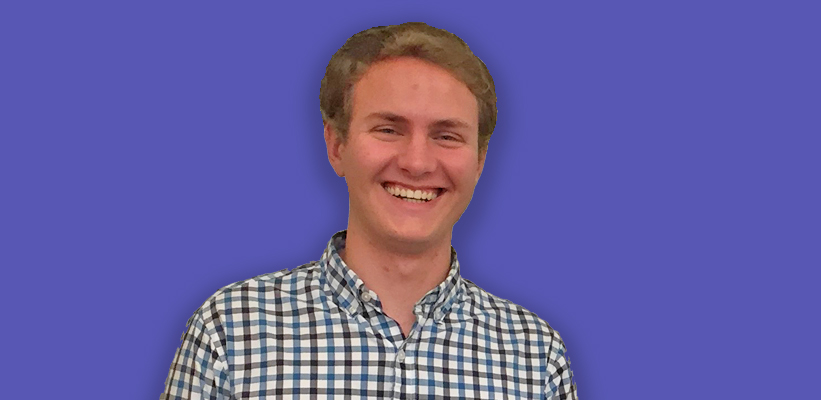Harvey Mudd Engineer Named Astronaut Scholar
September 6, 2017
The balance between real-world applicability and long-term research goals is not always easy to achieve. But, that doesn’t deter Charles Dawson ’19, winner of the prestigious Astronaut Scholarship for the 2017–2018 academic year.
“In my career, I hope to find this balance by being mindful of the bigger picture of how to bring technological developments in the real world while pursing research at the frontiers of my field,” Dawson said. “Fundamental research has the capacity to address many of the problems facing humanity today, from energy sustainability to space exploration, but only if the scientists and engineers who conduct that research keep those problems in mind.
Dawson, an engineering major, is the 24th Harvey Mudd College student to be named an Astronaut Scholar by the Astronaut Scholarship Foundation, which provides scholarships of up to $10,000 each for college students pursuing careers in science, engineering and mathematics. The scholarship rewards students who exhibit initiative, creativity and excellence in their chosen field.
Dawson spent the summer of 2016 at Georgetown University working on computational physics research in the field of active colloidal materials, which can be used to model bacterial films and certain classes of nano-particles. Last year, he worked with physics professor Jim Eckert in the Magnetism Lab studying the electrical and magnetic properties of metallic novel materials.
“So far, I’ve worked on measuring the magnetic properties of multi-layer metallic films typically several nanometers thick that might one day be used to improve the storage capacity and speed of magnetic hard drives,” Dawson said.
His research experiences both here and at Georgetown not only taught him valuable experimental and analytical skills, but have also challenged him to ask bigger questions.
“I’ve learned that it’s not enough, for example, to find out how the magnetic properties of a material changes with its composition; you have to think about how that dependence can be used to improve the various systems built on top of that material,” Dawson said.
The creative challenge of adapting a system to new and untraditional components is something Dawson enjoys pursuing outside the research lab through various independent projects. He is building and programming control systems for an aerial robot that flies using only two motors. Limiting the number of motors presents several challenges since each motor must double as a source of thrust and a carefully controlled source of torque to control the orientation for the robot.
“One of the things I enjoy most about projects like this is that, in addition to posing fun and interesting new challenges, they allow me to dive deeply into a wide variety of topics from control to electrical engineering, and gain a deep understanding of every level of the system I’m designing,” Dawson said.
In addition to his research, Dawson chairs the College’s Honor Board and is part of the improv comedy group, “DUCK!”
“I use improv mainly to decompress, relax and have fun away from my class work,” Dawson said.
After graduation, he plans to attend graduate school to explore the intersection of physics and engineering with an eye toward applying new advances in physical understanding to engineering applications.
The Astronaut Scholarship Foundation is a nonprofit organization established in 1984 by the six surviving members of America’s original Mercury astronauts. The Astronaut Scholarship is the largest, merit-based monetary award given in the nation to science and engineering undergraduate students. Harvey Mudd College is one of 27 institutions—and the only non-doctorate granting school—selected by the foundation to participate in the program.
